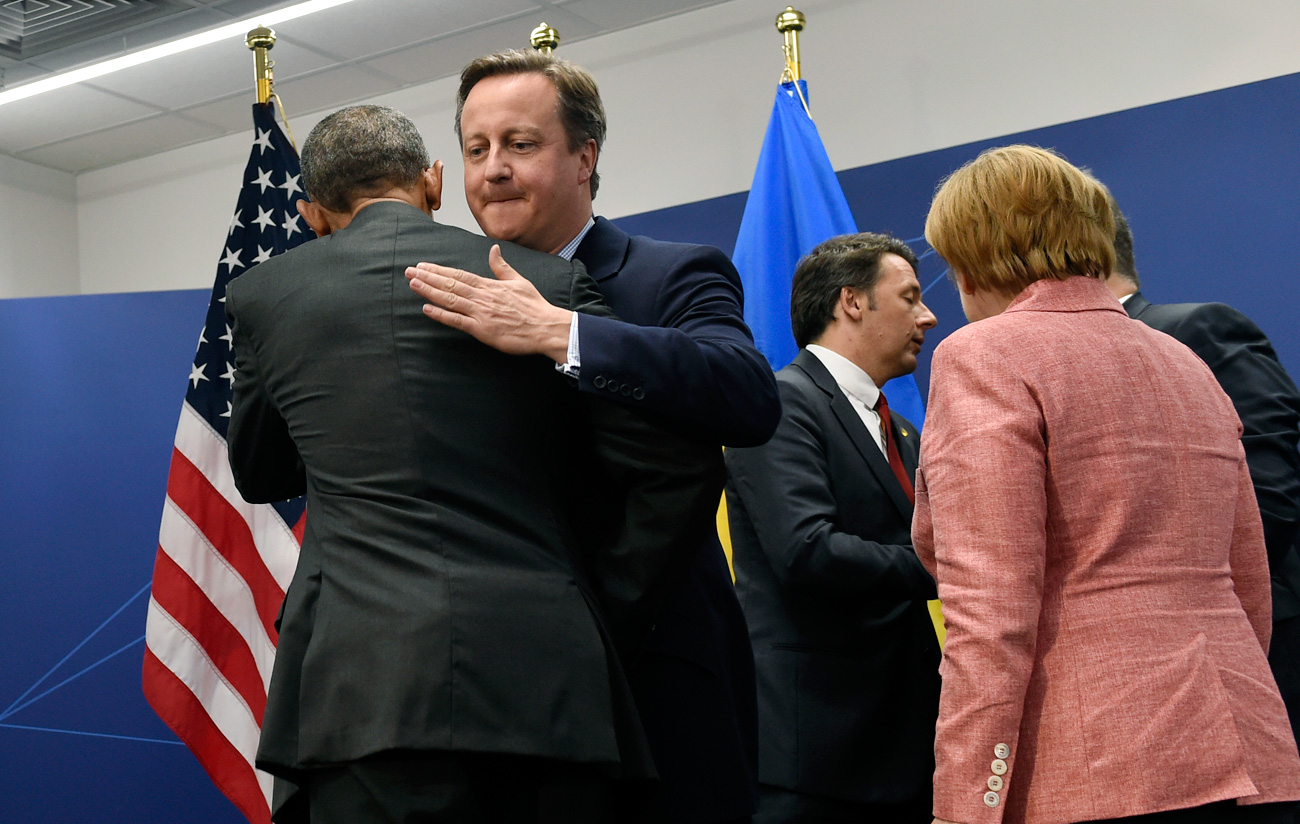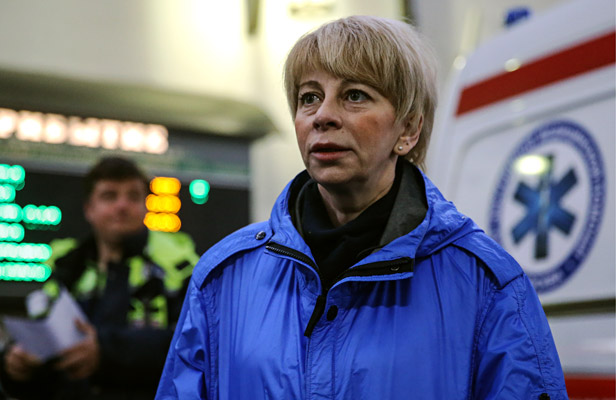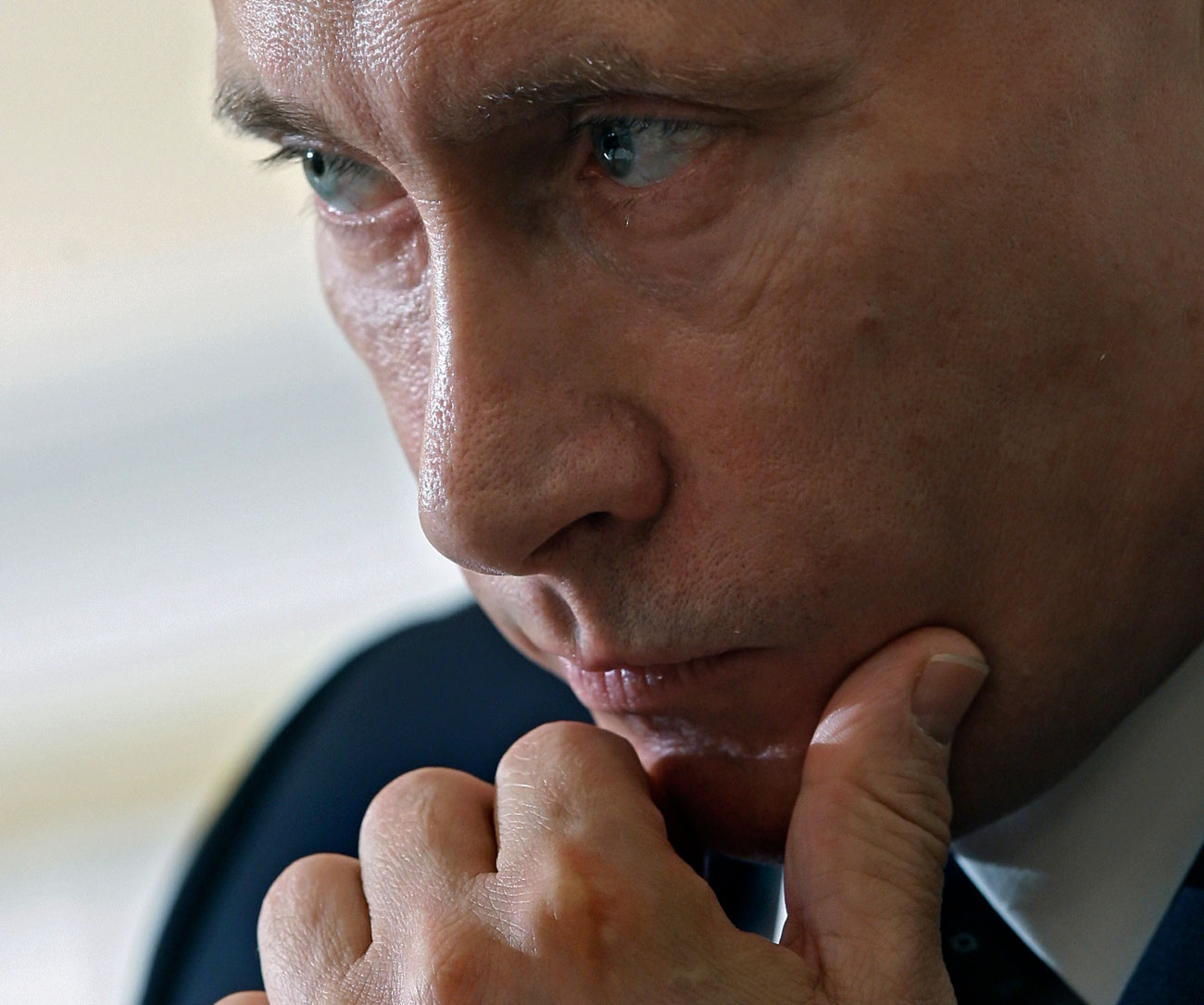Why 2017 will mark the ‘start of a new era’ in global politics

President Barack Obama hugs British Prime Minister David Cameron as Italian Prime Minister Matteo Renzi, second from right, and German Chancellor Angela Merkel, right, talk at PGE National Stadium in Warsaw, Poland, July 9, 2016.
APWhat happened in 2016 is a consequence of long-accumulated changes, of quantity transformed into quality. It marked the end of a period, after the Cold War, when the overwhelming belief was that a new world order was gaining momentum. In reality it turned out that something else was happening: an attempt to revamp Western institutions that had served the Cold War and a bipolar confrontation to fit a U.S.-centric world. To no avail: Fundamentally different global circumstances required different forms.
Now this has been understood, yet it is still unclear what will come in its stead. For the time being, it seems to have taken the form of a rising wave of “sovereignization” and a recoil from global universality, though nobody denies the general interdependence and interconnection of the world today. As the political order shifts, particular responsibility rests with leaders, those who should be and have been entrusted with governing these processes.
Who are the people whose actions defined 2016?
In this author’s purely subjective rating, the face of global politics was that of Philippine President Rodrigo Duterte.
In an exaggerated way, he embodies a global trend represented by Donald Trump, the leaders of the Brexit movement in the UK and other figures who are traditionally described as populists. Until recently, a politician like that was doomed to a quick failure and departure from the political scene. However, now everything may turn out differently: Both the balance of power in the world and people’s mood are changing.
Another typical 2016 category is representatives of the political mainstream who have lost touch with the public sentiment in their own countries.
British Prime Minister David Cameron and his Italian counterpart Matteo Renzi decided to make use of voters’ opinions in order to resolve governance issues and lost in a big way. Holding referendums when people practically everywhere are increasingly dissatisfied with their “bosses” is not just a risk, but a practically guaranteed defeat.
The category of those who failed to make an adequate assessment of the situation includes Hillary Clinton too, who described Trump supporters as “deplorables.” She did not realize (just like the leaders of the Remain campaign in the UK) that the “deplorables” might be quite numerous and might take offense.
A separate place in Europe and the world in general belongs to German Chancellor Angela Merkel, an embodiment of stability in politics, both in the positive and negative sense.
In the positive because Merkel, despite all the tectonic shifts both inside and outside the county, continues to firmly hold the rudder and control the situation. In the negative because German politics increasingly displays one national characteristic: Steadfastness in pursuing a set course and unwillingness to adjust it, even if significant circumstances change.
The outgoing U.S. president, Barack Obama, is not ending his tenure on a high note. He is likely to go down in history as a politician who had a subtle ability to sense changes but who never came up with a way of dealing with them.
Russia needs a policy of new substance
Russian President Vladimir Putin has successfully been strengthening his reputation as the world’s most powerful head of state. Since summer 2016, there has been endless talk of Russian interference in the U.S. electoral process; and the same is likely to happen in Germany ahead of the Bundestag election in the fall of 2017.
What is worth noting is that Putin became a symbol of something that the West finds frightening not in the global arena but inside individual countries.
The main outcome of year 2016 is changes inside the core of the global system, in Western countries. People’s growing unwillingness to follow a path that the ruling class has until recently believed the only possible one is disconcerting for the governing elites, who now have to adjust their policies.
Furthermore, these adjustments have to be made quickly: Unless the establishment adapts to the public sentiment, it will not be possible to stop the advance of the “populists.”
In the coming year, one example of such clever adjustment could be France, if Francois Fillon prevents the National Front from coming to power by borrowing some of its slogans.
The year 2017 will mark the start of a new era. The quarter of a century since the breakup of the Soviet Union has ended, together with the agenda brought about by the end of the Cold War. This needs to be understood by everyone, including Russia, which needs a policy of new substance.
Fyodor Lukyanov is editor-in-chief of Russia in Global Affairs magazine and chairman of the Presidium of the Council on Foreign and Defense Policy, an independent Moscow-based think tank.
The opinion of the writer may not necessarily reflect the position of RBTH or its staff.
Read more: Why it’s time for Russia to offer more than just a vision for the world
First published in Russian by Gazeta.ru.
Subscribe to get the hand picked best stories every week
All rights reserved by Rossiyskaya Gazeta.
Subscribe
to our newsletter!
Get the week's best stories straight to your inbox

